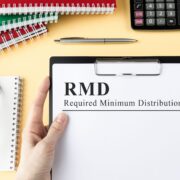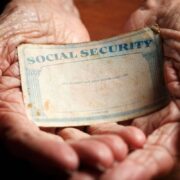Paying expenses on time has ended up being a challenge for numerous Americans, thanks to the novel coronavirus.
Is Another Stimulus Examine Coming?
However here’s fortunately: Cash-strapped people have access to a series of relief measures to make monthly costs budget-friendly. The federal government, state lawmakers, and personal businesses have rolled out forbearance and deferment programs to combat the monetary troubles triggered by layoffs, furloughs, and other financial obstacles.
One caveat is that late summer and early fall will cause the expiration of a number of relief choices consisted of in the Coronavirus Help, Relief, and Economic Security Act, or CARES Act, which was signed into law in March. However, in some cases, these steps have been extended or replaced by arrangements dictated under President Donald Trump’s executive orders, checked in August.
Some experts note that these governmental measures do not hold the exact same legal power as the passage of a stimulus expense in Congress. And an extension of relief is essential for the millions of Americans who remain out of work or are experiencing earnings interruptions. “Things aren’t slowing down,” states Ashley Harrington, federal advocacy director and senior counsel at the Center for Responsible Financing, a North Carolina-based organization that works to make sure reasonable credit practices. “I think individuals are still very anxious and worried about their monetary and health outlook.”
While it often makes good sense to continue paying your bills on time if you’re able, these programs are readily available to ensure that the hardest-hit Americans can pay for fundamentals such as food and shelter.
There are expenses you may have the ability to avoid, stop briefly or deprioritize during the coronavirus pandemic:
- Home mortgage payments.
- Rent payments.
- Trainee loan payments.
- Credit card costs.
- Bank fees.
- Automobile payments.
- Energy bills.
To begin, examine your charge card and bank declarations to tally which bills you’re paying each month. After that, examine whether relief is supplied through some type of state or federal program or whether you require to call a personal company.
Home Loan Payments
If you’re struggling to pay your mortgage, you’re not alone. An estimated 3.8 million American homeowners are now in forbearance strategies, according to an August report from the Mortgage Bankers Association.
The federal government –– plus, some private lending institutions –– is pausing payments for eligible, having a hard time house owner. Your mortgage relief options are determined by whether you have a federally backed mortgage or a private one.
Federal loans are those provided through entities such as the Federal Housing Administration, or FHA, U.S. Department of Veterans Affairs, and Fannie Mae or Freddie Mac, to name a few companies. The Consumer Financial Protection Bureau website consists of resources to determine your home loan owner.
Under the CARES Act, house owners with federally backed mortgages may ask for approximately 180 days of forbearance, which provides a break from paying, with an additional 180 days upon request.
Forbearance doesn’t forgive payments but puts a pause on them, without accruing additional costs and interest. At the end of your forbearance, you may select to pay all of your missed out on payments as soon as, spread them out over a duration of months or add them to the end of your mortgage, according to the Customer Financial Security Bureau, or CFPB.
As the initial 180 day forbearance period expires for homeowners, it might make sense for them to contact their servicer to ask for an extra 180 days, which might extend relief for a total of 360 days.
If you have a personal home mortgage, call your servicer or check its site for info on financial hardship programs. “You need to call mortgage servicers and request that relief,” Harrington states.
Your state may provide its own mortgage relief choices, so examine what programs are readily available. And if you can pay your home loan, you should, according to the CFPB.
Lease Payments
The expulsion securities set out under the CARES Act expired at the end of July. To prevent a wave of evictions, Trump released the “Executive Order on Combating the Spread of COVID-19 by Supplying Support to Renters and Property Owners” on Aug. 8.
But specialists note that this isn’t a stop on expulsions and does not have zest without genuine legislative action. Rather it directs certain departments to discover methods to supply relief to struggling proprietors and tenants. “The idea that this can be done without comprehensive legislation is not possible,” Harrington says.
If you can pay your lease, you may want to prioritize this payment unless stronger relief procedures are passed. If there’s not a way to pay your bill, investigate whether your state or town has suspended expulsions during the COVID-19 pandemic. Some states, such as Pennsylvania, have extended a statewide moratorium on foreclosures and evictions. Talk with your property owner and investigate regional housing help programs.

Student Loan Payments
Like with a home loan and lease payments, your relief choices are tied to who owns your loan. Under the CARES Act, federally held student loan and interest payments are immediately suspended through Sept. 30, 2020. Trump’s “Memorandum on Continued Student Loan Payment Relief Throughout the COVID-19 Pandemic” extends student loan relief until Dec. 31.
With the CARES Act, stopped briefly trainee loan payments count towards loan forgiveness programs, such as Civil Service Loan Forgiveness, so participants in those payment strategies don’t need to pay their student loan bill to continue making development toward their forgiveness goal. This is an uncommon case in which you should not pay your costs, even if you can manage it.
Within the executive memorandum, it’s not defined whether nonpayments on income-based plans would continue to count throughout the prolonged time frame, Harrington notes. It will be worth awaiting more details prior to deciding on whether those payments ought to continue to be halted.
Automatic relief only applies to loans owned by the Department of Education, Harrington says. So if you have Perkins Loans, for instance, which might be owned by the organization you went to, you can not look for an automatic reprieve.
Private trainee loan holders need to call their servicer. Harrington also notes that some states have partnered with private loan servicers to offer relief to debtors.
Charge Card Costs
If your credit card payments are uncontrollable due to task loss or another income interruption, think about working with your provider to find some relief. “Right now, many credit card providers are dealing with clients,” states Simon Zhen, senior research study analyst at MyBankTracker.com.
Credit card providers might use forbearance programs, which permit you to press back or decrease payments for a set amount of time. They may also nix late charges and charges.
While you might try calling your provider to discover your alternatives, there are reports of long haul times. So think about visiting your issuer’s site, which may have a demand form to make an application for a monetary hardship program, Zhen states. Get whatever in composing, so you comprehend when payments resume, whether you’ll owe some sort of bulk payment and whether interest continues accruing.
Bank Fees
Right now, there are great deals of opportunities for banks to charge costs, such as account maintenance or overdraft fees. But there’s some great news for Americans experiencing financial difficulty due to the coronavirus pandemic. “For banking fees and whatnot, most of those are being waived and refunded,” Zhen says.
You might have to call and ask to have these fees lowered, so monitor your accounts to see if they’re being charged and examine your bank’s relief alternatives.
Cars And Truck Payments
Lenders are also dealing with motorists to offer relief for automobile payments during the coronavirus pandemic, Zhen states. Work with your lending institution to decrease or pause payments while you experience monetary difficulty.
Utilities
Suppliers of essential utilities such as gas, electrical energy, and water are dealing with clients to ensure the continuation of vital services if you can’t pay, Zhen says.
You may need to call and ask for challenge relief, Harrington says. Inspect likewise whether your state or municipality has any relief programs offered. Numerous states have suspended utility disconnections, according to the CFPB.
The Bottom Line
Your monthly costs from lots of federal and state entities can receive relief. Pausing or lowering your payments to personal entities isn’t ensured, however, lots of lenders want to work with debtors. Examine whether your state has its own challenge programs available.
If you can pay your expenses, it’s frequently a good concept to continue. And if you’re having a hard time making ends fulfill, take advantage of these programs and utilize the cash left over to look after essentials, including shelter, food, and health care costs, Zhen states. Possibly this is the time to divert additional cash toward your emergency situation fund or simply guarantee that you can feed your family or spend for health insurance coverage.
Watch on the news. Assistance on the implementation of Trump’s executive orders or maybe an extra-legal action might impact how aggressively payment is gathered on these costs.
“We don’t when this is going to end and what the general effects are going to be,” Harrington states. “Simply think about your entire financial situation and how you can make it more workable in the short and long term with this relief.”





















Comments